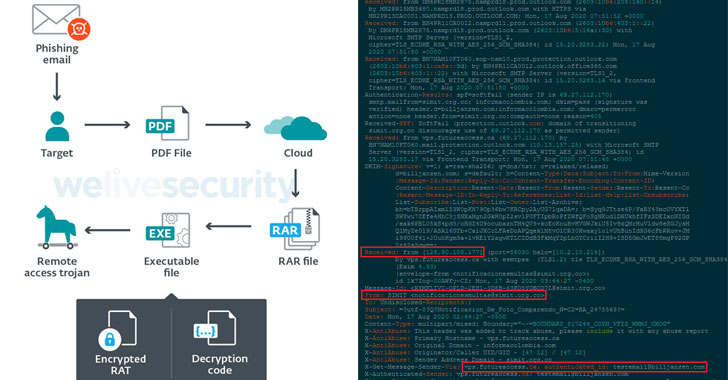Amazon Web Services (AWS) has urged the United States District Court to dismiss Parler’s application to have its service reinstated on its public cloud platform.
The stricken social media firm filed a temporary restraining order lawsuit earlier this week against AWS, that sought to reverse Amazon’s decision to prevent Parler from using its servers to host its app and website for violating the terms of its acceptable use policy.
The Parler lawsuit also saw the company accuse the public cloud giant of anti-trust and the breach of contract, after AWS shut off access to its services to Parler from midnight on Sunday 10 January 2021.
As previously reported by Computer Weekly, AWS was moved to act after details emerged about the role Parler (and its users) played in co-ordinating the deadly attack on Capitol Hill in Washington DC on Wednesday 6 January 2021, whereby pro-Trump supporters stormed the building.
It has also since emerged that Amazon has repeatedly warned Parler about the violent nature of the content being shared on its platform by users and how this risked violating its terms of use, but insufficient action was taken to address this.
Further details on this are contained within the lawsuit AWS has since filed in response to Parler, which also includes multiple examples of the type of explicit content being shared by users of the site that had previously given Amazon cause for alarm.
Threats of violence
These include threats to assassinate prominent figures in US politics and the technology community, carry out violent acts against specific ethnic minority groups and incite others to embark on further protests relating to the outcome of the US Elections in November 2020.
“This case is not about suppressing speech or stifling viewpoints. It is not about conspiracy to restrain trade. Instead, this case is about Parler’s demonstrated unwillingness and inability to remove from the servers of Amazon Web Services content that threatens the public safety, such as inciting and planning the rape, torture and assassination of named public officials and private citizens, “ the AWS lawsuit states.
“There is no legal basis in AWS’s customer agreements or otherwise to compel AWS to host content of this nature. AWS notified Parler repeatedly that it’s content violated the parties’ agreements, requested removal, and reviewed Parler’s plan to address the problem, only to determine that Parler was both unwilling and unable to do so.”
The AWS filing refutes the suggestion that this action constitutes a breach of contract because, while its terms of service stipulate that the firm must give customers 30 days’ notice of their intention to terminate their contracts, the Parler switch-off is classified as a service suspension.
“AWS suspended Parler’s account as a last resort to prevent further access to such content, including plans for violence to disrupt the impending Presidential transition,” it added.
“Despite Parler’s rhetoric, its lawsuit is no more than a meritless claim for break of contract, but the facts are unequivocal: if there is any breach, it is Parler’s demonstrated failure and inability to ideitfy and remove such content.”
The lawsuit concludes with AWS “respectfully” asking the court to deny Parler’s motion, on the basis that it does not meet the “exceptionally high standard” for a temporary restraining order to be issued.
At the time of writing, and until the court issues its response to the cases, it remains to be seen what Parler’s next move is likely to be, given the company’s CEO confirmed in media reports that it was struggling to find an alternative cloud provider to host its workloads.
At the same time, Apple and Google have also both banned Parler from being available to download via their respective app stores, meaning even if it can find an alternative host, it may still struggle to attract new users.
Cris Pikes, CEO of image moderation software company, Image Analyzer, said there is a lot riding on the outcome of these lawsuits, in terms of Parler’s own battle for survival.
“The company’s survival depends on its capital reserves, how long it takes for the courts to come to a decision and the outcome of its court case,” said Pikes. “Whatever the judges decide, the world is watching as this case will set an important precedent for other public cloud providers, platform operators and interactive website owners.
“Many of Parler’s users are reported to have signed up to alternative platforms that offer less content moderation and greater message encryption. This may mean that Parler’s user base will be diluted to the point that it will never return.”
Increasing scrutiny
For the wider public cloud community, the case could have far-reaching consequences and comes at a time of increasing scrutiny from lawmakers and politicians about what tech firms are doing to police how their platforms are used.
“Both Republicans and Democrats alike are urgently looking at repealing and updating Section 230 of the US Communications Decency Act, which offers platform operators protection from prosecution for the content that their users upload and share and why our own government is working hard to pass the Online Safety Bill and bring it into force by 2022.
“What this will mean is that any interactive website owner will be made responsible for moderating the comments, livestreams, video and images that their users upload or share.
“The legal overhaul is urgently needed. As we saw with the five lives tragically lost at Capitol Hill on 6th January, and the thirty nine BT engineers who were physically or verbally assaulted as a result of the 5G/Covid-19 conspiracy theories shared on social media, online harms translate to real harms.
“Legislation has been slow to catch up with the harmful application and abuses of communications technology, but it is catching up. CIOs need to take note and take legal advice in the months ahead,” said Pikes.













